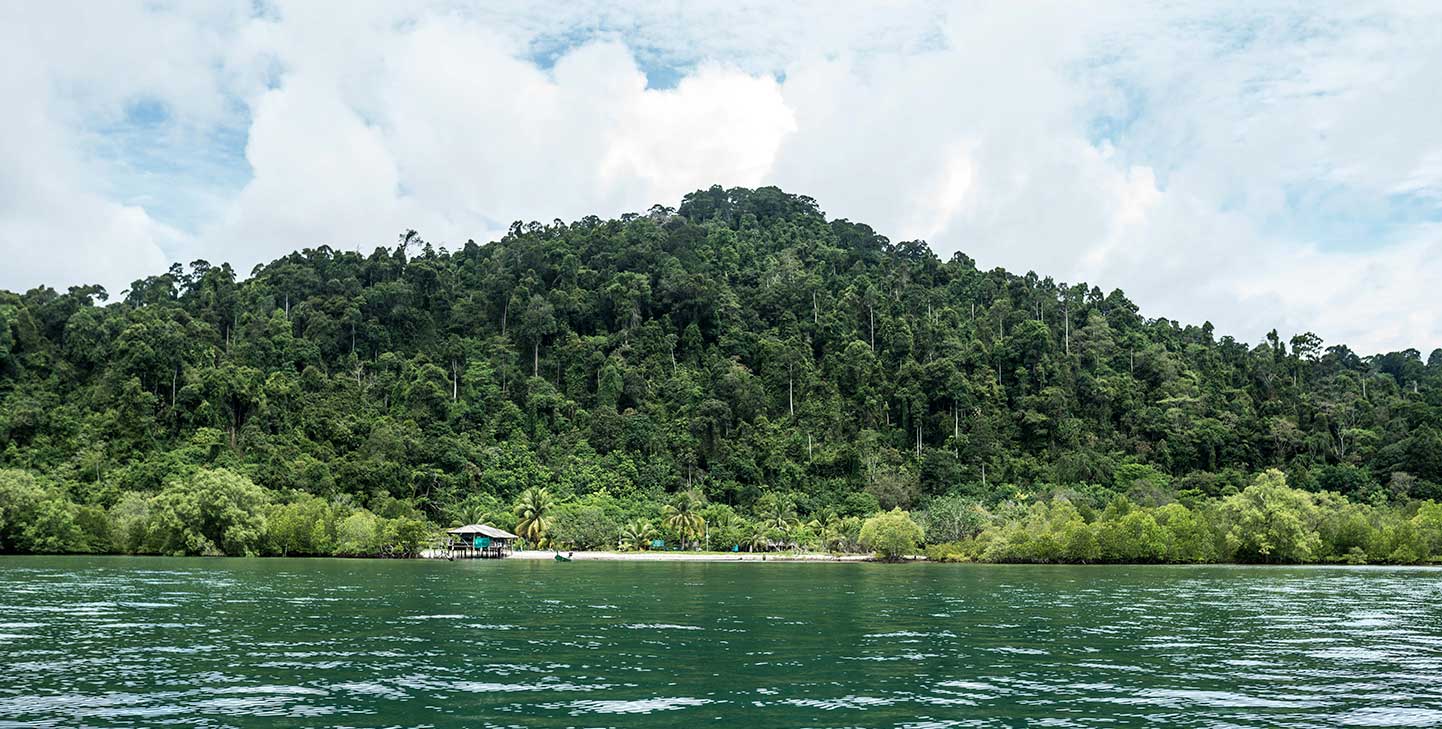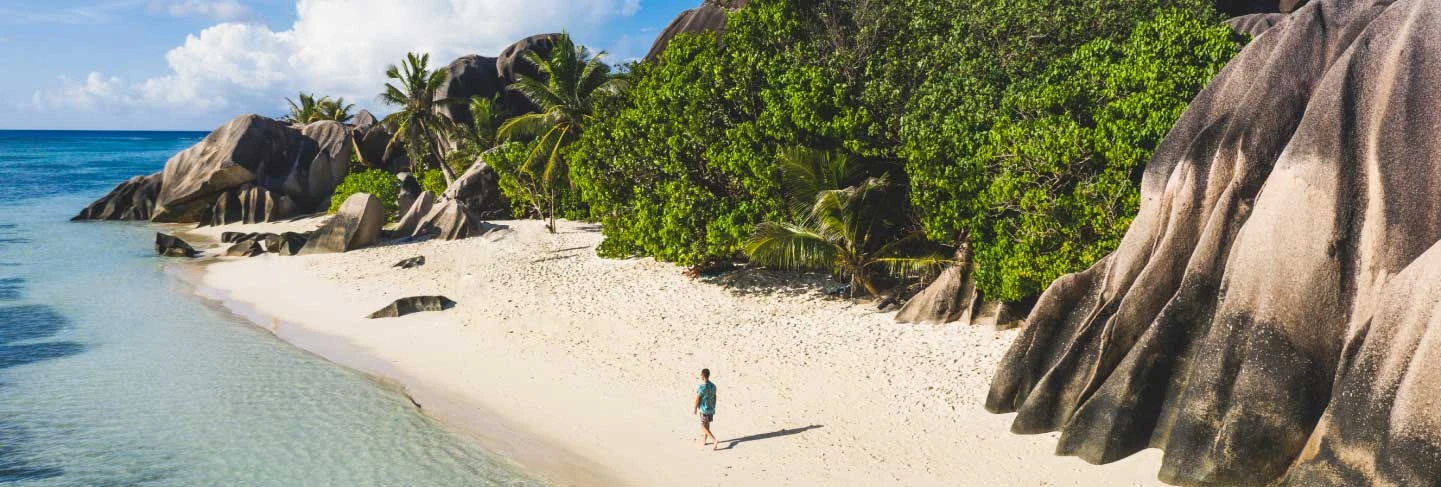Volunteer in Asia
Make impact amid rich cultures and rare wildlife.
A volunteer program in Asia is a once-in-a-lifetime opportunity to meet like-minded people from around the world, support communities and help protect endangered species like elephants, gibbons and sea turtles.
Asia is calling, and it’s time to answer! With its breathtaking natural landscapes, rich cultural heritage and endless opportunities for adventure, this continent is a dream come true for anyone seeking an exhilarating volunteering experience. From hiking through lush forests and swimming in pristine waters to exploring historic temples and vibrant markets, Asia boasts a diverse range of unique and rewarding experiences for everyone, whether you are on a gap year, a summer volunteer holiday or on a career break.
With GVI, you can make a real difference in the world with one of our conservation programs – from working with elephants and conducting research on endangered white-handed gibbons, to sea turtle rehabilitation and coastal conservation.
From our two research stations in Thailand we offer a variety of volunteer, internship, research fellowship and professional apprenticeship programs, including:
- Volunteering with elephants in Chiang Mai
- Volunteering with endangered sea turtles in Ao Nang
- Gibbon conservation internship in Chiang Mai
- Wildlife conservation research fellowship in Chiang Mai
- Coastal conservation professional apprenticeship in Ao Nang
Filter programs
Contribute to sustainable conservation projects led by experts.
Use your unique skills and expertise to support conservation projects.
The adventure of a lifetime while making an impact with a group of like-minded teens.
Generate solutions to help solve conservation challenges through research projects.
Turn your passion into your profession with a three-month placement at an NGO.
Make the most of our unique programs with these exclusively curated local adventure and wellness experiences.
Our volunteer programs in Thailand are a chance to gain hands-on experience in conservation while directly contributing to the United Nations Sustainable Development Goals (UN SDGs) , specifically UN SDG 5: Life on Land and UN SDG 14: Life Below Water.
You’ll work alongside local communities and organisations dedicated to preserving marine, coastal and island ecosystems. If you’re passionate about marine biology or simply want to give back while travelling, this is your chance to make a difference and create unforgettable memories.
A collaborative approach
In Chiang Mai, we work in partnership with the local elephant-keeping community. Here we work towards reintegrating elephants from tourist camps back into their natural habitat. Our program partners with local mahouts, who are expert elephant handlers with generational knowledge of these animals. As a participant, you’ll have the opportunity to work alongside the mahouts, tracking and observing elephants while collecting valuable data on their behaviour and health.
At our coastal research station in Ao Nang, Krabi, we partner with local community members and conservation organisations to support vital marine conservation efforts. You’ll be actively involved in projects aimed at preserving endangered sea turtles and dugong populations, all while surrounded by stunning mangrove forests, limestone cliffs and white-sand beaches.
Volunteer programs in Thailand
When you join a volunteer conservation program in Thailand, you’ll be contributing to critical conservation efforts. Work with elephants or conduct research on gibbons and birds in Chiang Mai, or support marine conservation efforts in Ao Nang by monitoring coral reefs and sea turtle populations. We offer a range of programs suitable for different time schedules, catering to those with a week of annual summer leave, planning a gap year or seeking a long-term volunteer and travel experience:
- Volunteer with elephants
- Sea turtle conservation and adventure teen volunteering
- Elephant conservation teen volunteering
- Coastal conservation expedition
- Gibbon conservation volunteering
- Endangered turtle conservation and research
- Elephant and endangered sea turtle coastal conservation volunteering
- Plastic pollution and conservation volunteering
- Citizen science bird conservation volunteering
- Coral reef conservation volunteering
Internships in Thailand
Joining an international internship is a fantastic way to gain experience working in conservation and explore potential career paths. You’ll have the opportunity to participate in a wide range of conservation programs and initiatives, work hands-on with our local partners, contribute to important conservation research and develop leadership skills, including participating in interactive training sessions. An internship is the perfect opportunity to develop specific and transferable skills that will give you an edge in the workplace and make you stand out to potential employers.
GVI offers internships in Thailand with a focus on endangered sea turtles, gibbons and conservation initiatives:
- Elephant conservation internship
- Gibbon conservation internship
- Sea turtle conservation internship
- Coastal conservation internship
Professional apprenticeships in Thailand
Jumpstart your career with a six-month professional apprenticeship. You’ll gain valuable experience through a three-month job placement, working hands-on with either a conservation partner or GVI. Plus, you’ll receive career-readiness training, four recognised qualifications, and a LinkedIn reference.
We offer two professional apprenticeship programs in Thailand:
Elephant and wildlife professional apprenticeship
This apprenticeship program takes place in Thailand’s Chiang Mai region and provides opportunities to gain skills and experience in community development, biodiversity and elephant conservation. During the three-month program, you’ll assist with biodiversity studies and monitor the reintegration of elephants into the forest. The program includes a three-month work placement with GVI, as well as a targeted career-readiness program to develop leadership and career skills.
Conservation professional apprenticeship
Our six-month conservation professional apprenticeship internship in Ao Nang, Thailand offers valuable fieldwork experience and research skills while contributing to UN SDGs.After a three-month training period, you’ll spend three months working with GVI or local conservation organisations on projects related to sea turtles, tropical birds, butterflies, island conservation, camera trapping and marine plastic pollution.
Research fellowships
Take your academic profile to the next level with a research fellowship. You’ll have the opportunity to author or co-author a scientific paper and get published, while accessing unique data sets and receiving guidance from our team of experienced scientists and researchers. With decades of experience in facilitating nature conservation research, GVI has a legacy of published scientific research cited on Google Scholar over 1,000 times.
We offer two research fellowships in Thailand:
Wildlife conservation research fellowship
Our wildlife conservation research fellowship in Chiang Mai offers a unique opportunity to protect and research the habitats of species like elephants and gibbons. You’ll work on individual research projects focused on topics like biodiversity, birds, amphibians and reptiles, and even co-author a scientific paper. With valuable work experience, mentorship and training from industry experts, this program is the perfect chance to develop your leadership, teamwork and communication skills.
Coastal conservation research fellowship
Join our coastal conservation research fellowship in Thailand and work on real conservation projects like beach profiling and biodiversity surveys. You’ll learn how to identify species, collect data on sea turtles and contribute to conservation work. At the end of the program, use your research findings to write a final report for your university dissertation or ongoing research projects. Plus, complete three online courses in leading teams, sustainable development careers and wildlife conservation to boost your qualifications.
Thailand
We operate from two research stations in Thailand, each offering a unique travel and volunteer experience: Chiang Mai and Ao Nang.
Our first research station is in Chiang Mai, in the north, where you’ll find mountains and ancient temples. Set in a rural area surrounded by forests, you can take a break from the hustle and bustle and really get immersed in the local lifestyle. You’ll live and work in a traditional Karen village community in the mountains, located five hours away from Chiang Mai. Our programs in Chiang Mai focus on collaborating with local communities and organisations to support wildlife conservation and community development projects
Our second research station is in Ao Nang, nestled in Krabi province along the Andaman Sea. This is a dream destination for anyone who loves nature and stunning scenery. We’re talking lush mangrove forests, towering limestone cliffs and soft white-sand beaches just waiting to be explored. As a volunteer in Ao Nang, you’ll play a key role in protecting endangered sea turtles and dugongs, teaming up with local conservationists to make a real difference. With a mix of impactful work and beautiful surroundings, Ao Nang offers a unique experience that you won’t forget.
If you’re interested in joining a program with a community focus, we offer programs with a focus on education, public health, women’s empowerment, construction and volunteering with children in Cambodia and Nepal.
Cambodia
Our community hub in Cambodia is located in the town of Siem Reap, known as the gateway to Angkor complex where you’ll find the iconic Angkor Wat temple. Here you will be able to take part in teaching, health, women’s empowerment and community development programs. Known officially as the Kingdom of Cambodia, this small country will win the hearts of everyone who travels here. It is known by many for its grand temples and rich historical culture.
Nepal
In Nepal there is no shortage of adventure, culture and tradition! Our community hub is located in Pokhara and is focused around community development projects where participants can get involved in improving the education for local children by teaching English, contributing to sustainable construction projects, helping to improve the general access to basic public health, or volunteering with children.
Bali
We offer two incredible marine conservation programs in Bali: a marine conservation internship where you’ll gain diving certifications, and an island conservation expedition with snorkelling. Both programs are focused on combating the impacts of unethical tourism, pollution and climate change on Bali’s precious marine species and underwater habitats.
Our program hub is located in the fishing village of Amed, close to some of the world’s best dive spots and surrounded by black sand beaches, crystal-clear waters, volcanic mountains and lush forests. Here, we work closely with a local partner to conduct coral and seagrass surveys, coral transplanting, species monitoring and other important marine conservation activities aimed at protecting the precious, richly biodiverse underwater ecosystems of Bali’s stunning coasts.
Thailand’s Ao Nang and Chiang Mai regions boast an incredible range of wildlife species. In Ao Nang, you’ll have the opportunity to work with endangered sea turtles and monitor coral health, and participate in marine, wildlife, bird and butterfly conservation projects.
Meanwhile, in Chiang Mai, volunteers can observe and study endangered white-handed gibbons and Asian elephants, some of which have been relieved from the tourism industry and reintegrated into nearby forests. The region is also home to various bird species, butterflies, bats and mammals such as tigers and bears.
At GVI, we maintain the highest ethical standards across all our projects, guided by our ten ethical commitments and five empowerment principles. We are dedicated to constantly reflecting on and enhancing our policies and practices, as evidenced by our badge of ethics.
All of our conservation programs are designed and executed in partnership with local organisations to establish sustainable solutions that can be maintained without external support, ensuring long-lasting impact.
GVI’s conservation volunteer programs are designed in accordance with the UN SDGs. Every conservation program offered by GVI is linked with at least one of the UN SDGs.
We also have environmental impact and science officers working on-site to guarantee that our projects comply with the most current conservation best practices and the most rigorous scientific standards. GVI is a British Standards 8848 compliant provider.
To maintain ethical and safe operations in our wildlife volunteering programs, we enforce strict policies on animal interaction and follow rigorous health and safety practices. Our experienced staff members oversee all animal conservation volunteering activities to ensure they are impactful, safe and ethical.
At GVI, we prioritise the safety and well-being of our participants by taking necessary precautions, and providing trained support staff available 24/7, to ensure their comfort and security throughout all our programs.
Read more about the work we’ve done with the help of volunteers like you in our Impact and Ethics Report.









































